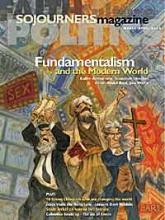Some time ago I was returning from a preaching gig in the Hamptons, home of Martha Stewart, Steven Spielberg, and numerous others of the very rich. There I had seen homes with two bedrooms on the market for $6 million, a house with a 200-car garage, and other architectural obscenities. But we had a wonderful weekend among the beautiful people of the Hamptons and no one walked out of my sermon on Sunday. As my wife and I flew back to drab Durham, North Carolina, I asked her, "Would you please explain to me what Jesus has got against rich people? I like rich people. I've met some great people who are rich. What's the problem with Jesus?"
Well, like it or not, built right into the fabric of the gospel and the practice of the Christian faith, there seems to be a deep suspicion of, even a hostility toward, the prosperous. I would have a much better time visiting the Hamptons if I were not forced to take Jesus with me.
As G. K. Chesterton said, "It may be possible to have a good debate over whether or not Jesus believed in fairies. It is a tantalizing question. Alas, it is impossible to have any sort of debate over whether or not Jesus believed that rich people were in big trouble—there is too much evidence on the subject and it is overwhelming."
There is a peculiar pastoral burden of having to preach Jesus Christ and him crucified in the midst of a nation of prosperity, particularly if the affluent are among us when we preach. Most of us preachers (to the discredit of the American church) preach to relatively affluent congregations. Jesus makes a prickly pulpit partner when, in the pews, sit those for whom he appears to have had deep antipathy.
Read the Full Article

